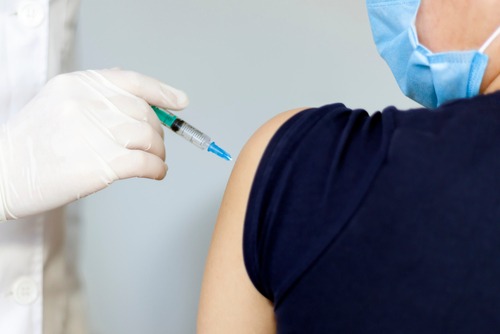
Researchers from the National Institute of Allergy and Infectious Diseases (NIAID) began a clinical trial this week investigating rare but potentially serious systemic allergic reactions to COVID-19 mRNA vaccines.
“People who experienced an allergic reaction after receiving a COVID-19 mRNA vaccine may be hesitant to complete their vaccine regimen,” Dr. Anthony Fauci, NIAID director, said. “This study will help us determine if individuals who experienced moderate systemic allergic reactions can safely receive a second dose of a COVID-19 mRNA vaccine.”
Accordingly, researchers seek participants who have experienced mild or moderate allergic reactions following their first doses of the Pfizer-BioNTech or the Moderna COVID-19 mRNA vaccines. Only mild cases are desired – those who have suffered severe allergic reactions to these vaccines are not wanted for the current trial. In all, up to 100 people between 16 and 69 years old could be enrolled.
All participants will be admitted to the National Institutes of Health’s Clinical Center in Bethesda, Maryland, where they will be held for no less than four days within the Intensive Care Unit. Overseen by experienced medical staff prepared to counter severe allergic reactions, they will randomly be given either a second dose of the Pfizer COVID-19 mRNA vaccine, Comirnaty, or a placebo dose.
“Overall, severe allergic reactions to COVID-19 mRNA vaccines, including life-threatening anaphylaxis reactions such as low blood pressure and difficulty breathing, are rare, on the order of five cases per million vaccine doses administered,” Dr. Pamela Guerrerio, trial lead, said. “Our study aims to provide a better understanding of the mechanisms responsible for systemic allergic reactions such as hives, swelling, trouble breathing and light-headedness or passing out.”
Participants will undergo regular breathing tests and blood draws, as well as mental health and anxiety questionnaires. Follow-up interviews will be conducted at several intervals until five months post-vaccination. At that time, those who tolerated the second dose of the vaccine with no or only mild symptoms will be offered a booster of the Comirnaty COVID-19 vaccine.

